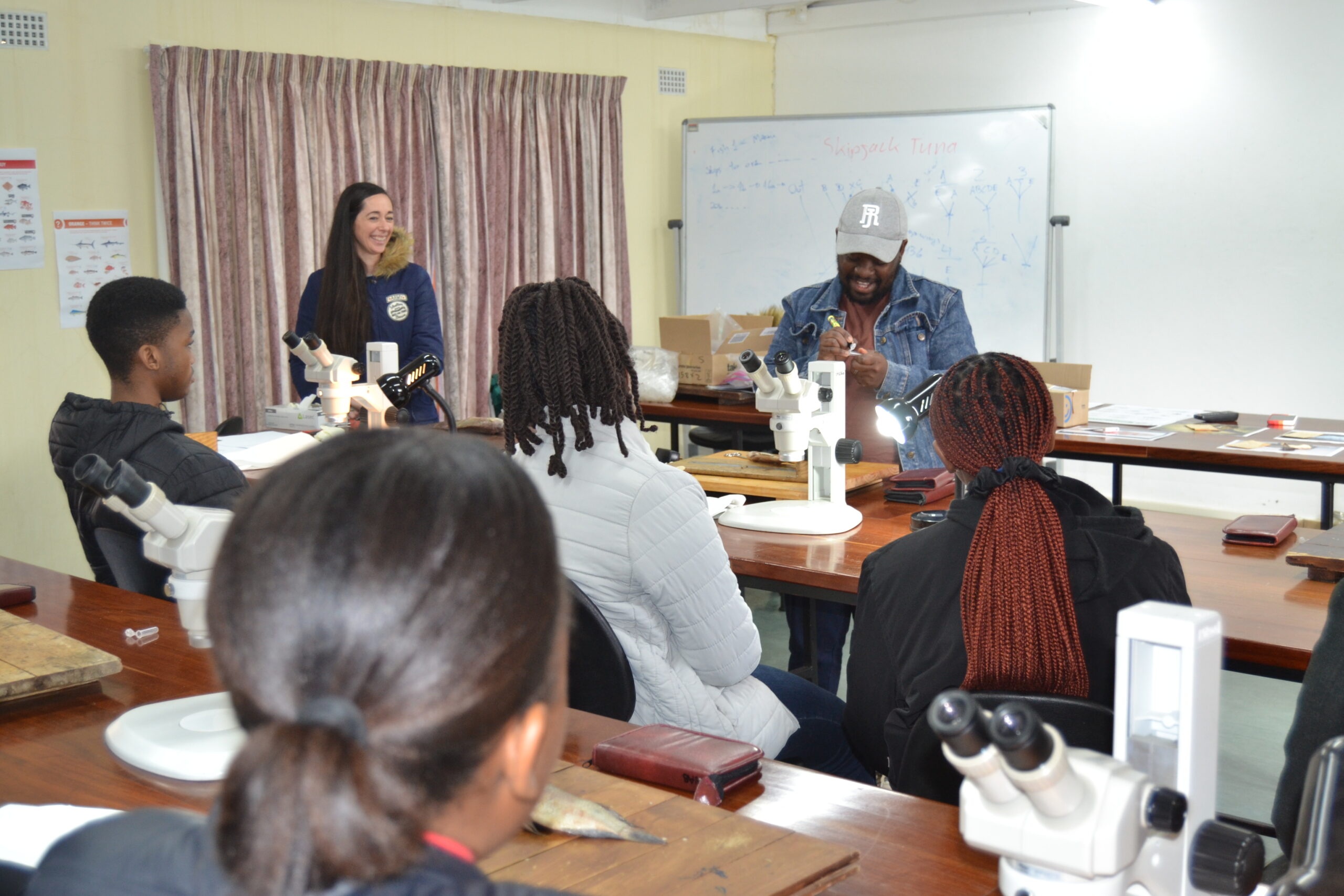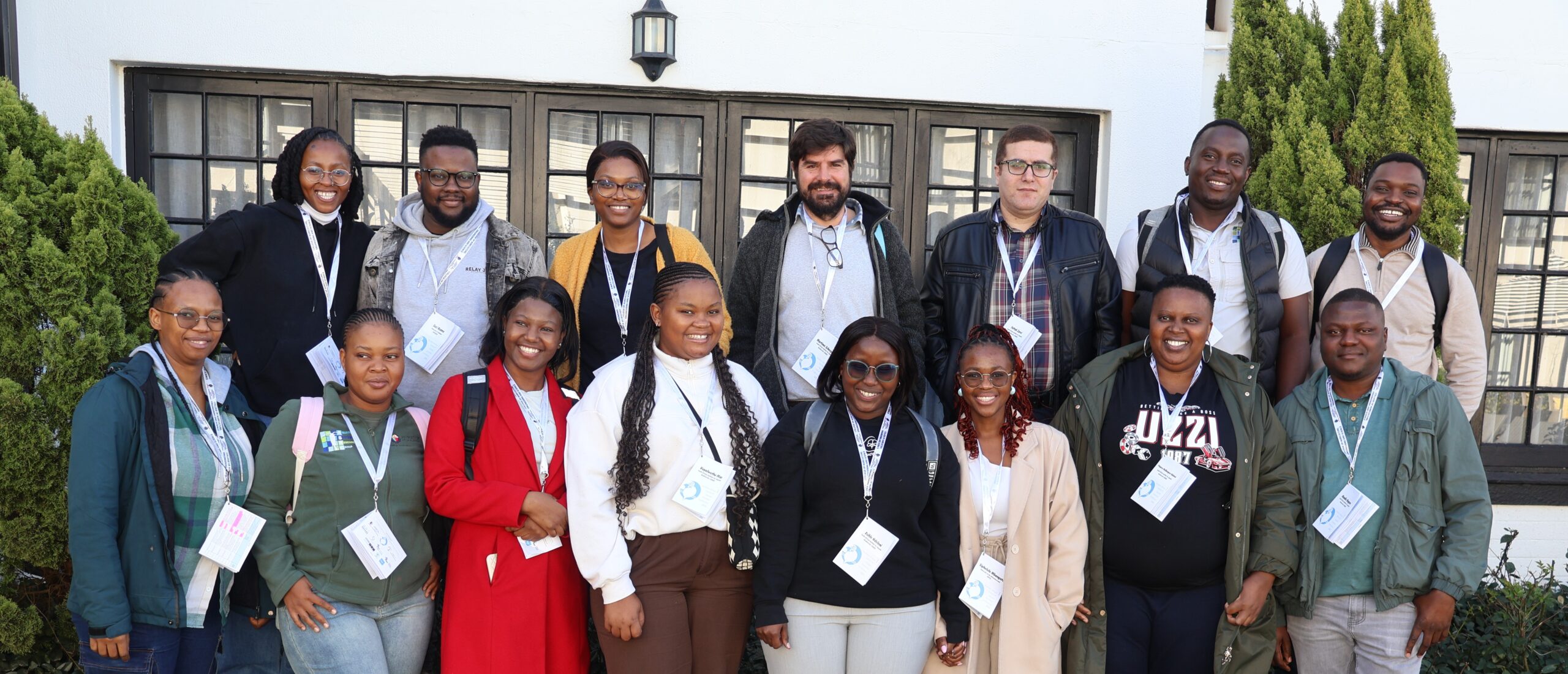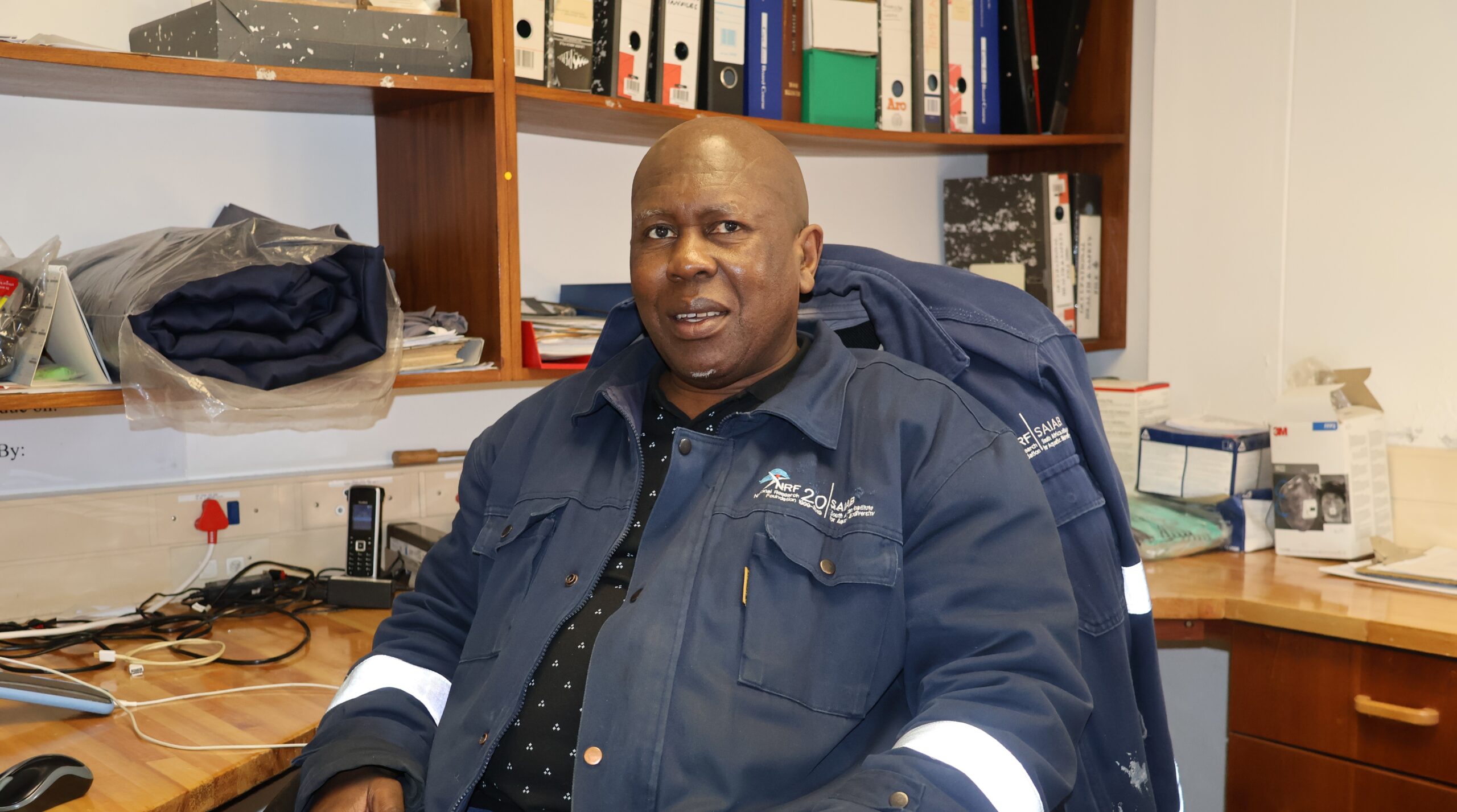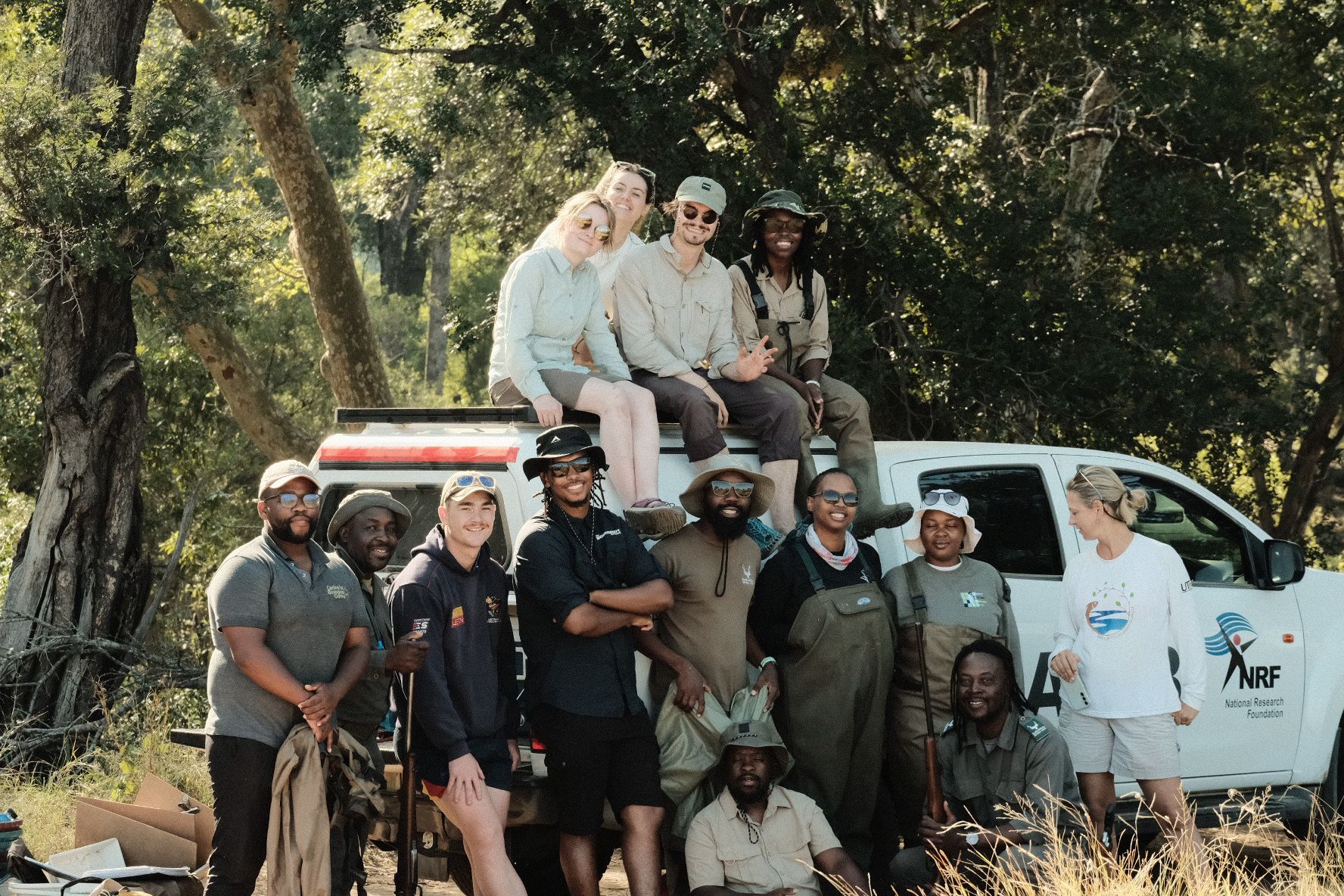The NRF-SAIAB (South African Institute for Aquatic Biodiversity) recently welcomed enthusiastic learners from various Makhanda high schools as part of the Science Internship Programme. Running for more than 10 years, the programme was initiated by SAIAB’s Prof Francesca Porri and a Life Science teacher from Victoria Girls’ High School and it is now coordinated by Ms Kim Weaver at Rhodes University. The aim of the programme is to expose learners to different science disciplines so that they can make a more informed decision about their future careers. The 2-day interaction took place on 10 and 12 July in Makhanda.
The first day of the programme kicked off with an engaging tour of SAIAB’s Ecophysiology lab and the Collections facility which currently boasts of over 1 million specimens of aquatic species, mostly fish. The learners were introduced to cutting-edge research equipment and techniques used in the study and conservation of aquatic life. They had the opportunity to interact with scientists and researchers, gaining insights into the importance of preserving and understanding biodiversity.
Next, the learners headed to Rhodes University’s Department of Ichthyology and Fisheries (DIFS) labs, where they were introduced to otolith dissection and microscope work. Otoliths, small structures found in fish ears, provide valuable information about their growth and environmental history. Under the guidance of SAIAB experts, the learners honed their observation and analysis skills through examining otoliths and understanding the basics of microscope work.
On the second day, the learners were hosted by the COST (Coastal and Ocean Sciences Team) and the SAIAB’s AGRP (Aquatic Genomics Research Platform) Lab. They were introduced to the IMIsee (Indigenous Marine Innovations for sustainable Environments and Economies) project, a transdisciplinary research undertaken by the COST at SAIAB, collaborators from Rhodes University and members of the Keiskamma Trust in Hamburg, Eastern Cape. The learners also had the opportunity to take part in practical activities and interact with PhD students and researchers, gaining insights into the importance of biodiversity, nature-based ecological engineering and the inclusion of indigenous knowledge in scientific research. Half of the group stated that they were interested in genetics and they were hosted by SAIAB’s Dr Gwyneth Matcher who taught them about the genetics lab and the methods associated with studying the life and DNA of aquatic organisms. The School Science Internship Programme is an invaluable opportunity for high school learners as it ignites curiosity through combining experiential learning, hands-on activities and engaging with field experts. Upon being interviewed about the programme, Prof Francesca Porri stated that she would be interested in tracking the paths of the programme’s past participants to fully measure the impact of the internship on youth from Makhanda.




